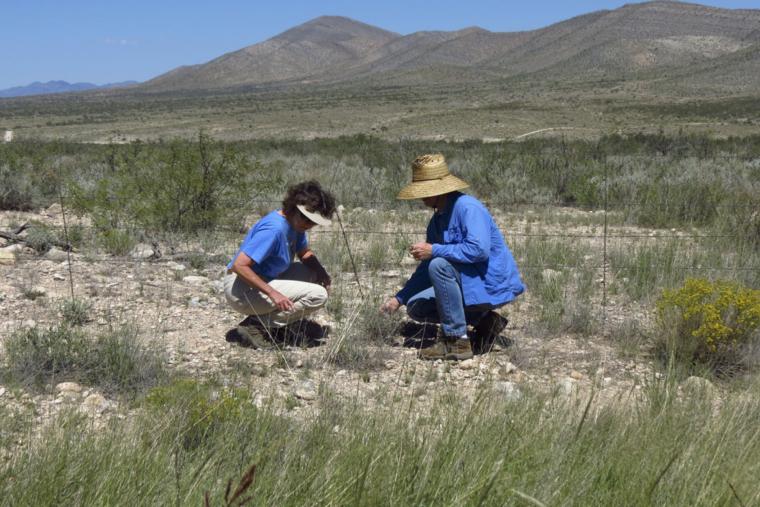Collecting/Expeditions
DELEP has undertaken numerous seed collecting expeditions around Arizona and other states in the southwestern U.S. since 1988. Some trips are local excursions lasting a day while trips to more distant locations can extend to a week or longer. We obtain permits to collect seeds from the relevant land management agencies and follow a policy of collecting only a small portion of the seeds that are ripe at the time we are collecting. Ideally, we collect approximately equal quantities of seeds from between 30 and 100 individual plants to include as much of the genetic diversity within a population as possible. Sometimes this is not practical and seeds are collected from only one or a few plants. Detailed information on each collection locality is recorded and herbarium voucher specimens are collected. To prevent problems with mildew, the fruits are kept in bags made of paper or breathable fabric so that any moisture can evaporate. Once back at DELEP's facilities, the fruits are dried and then placed in frozen storage until they the seeds are removed from the fruits and placed into the seed collection.
DELEP personnel have also collected seeds internationally in conjunction with the Boyce Thompson Arboretum in Argentina, Australia, and South Africa.
DELEP has hosted researchers from other institutions to collect seeds from the southwestern US:
- In 1991 and 1992, DELEP hosted Dr. Mark Newman, botanist of the Royal Botanic Gardens, Kew, for extended seed collecting trips in Arizona, California, and New Mexico.
-
In 2004, DELEP hosted Dr. Rich Hannan from the USDA-ARS for a joint trip to collect seeds of wild species of Phaseolus in Arizona for inclusion in the U.S. National Germplasm System.
collecting_in_field.jpg

Locating a population of Pomaria jamesii near Dragoon, AZ, originally reported in the 1930s
